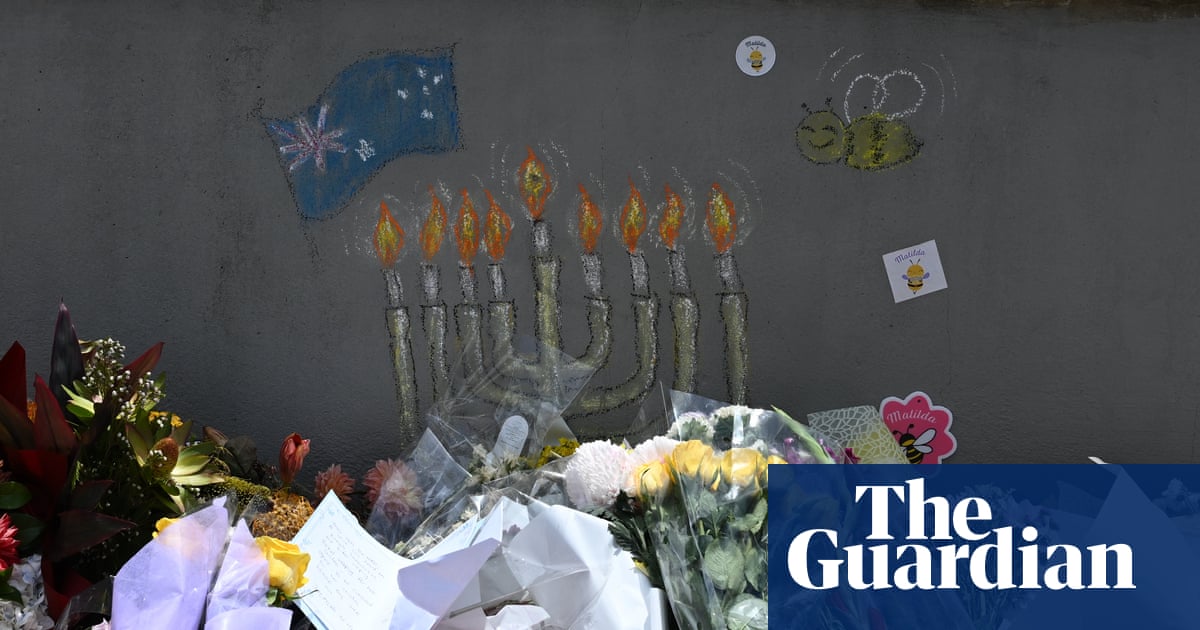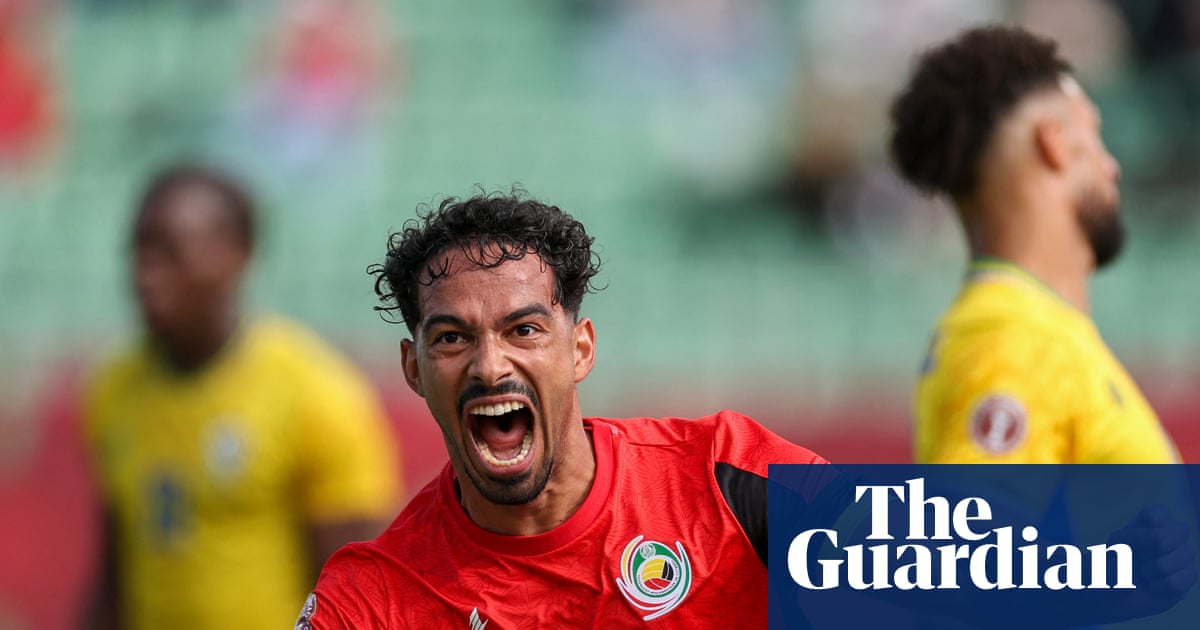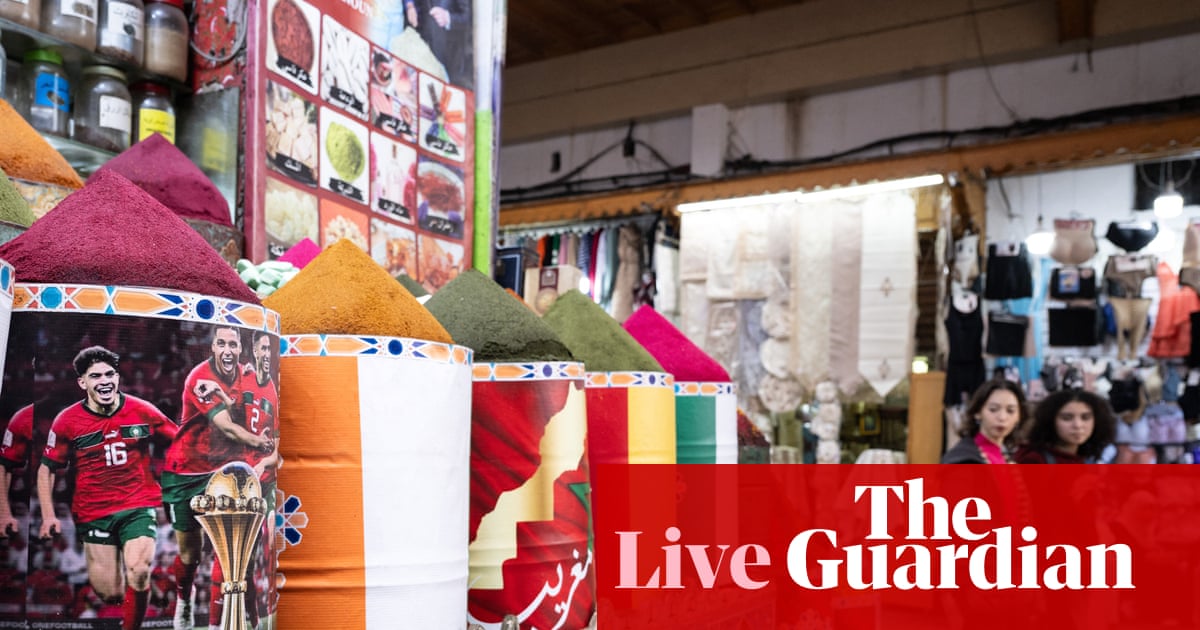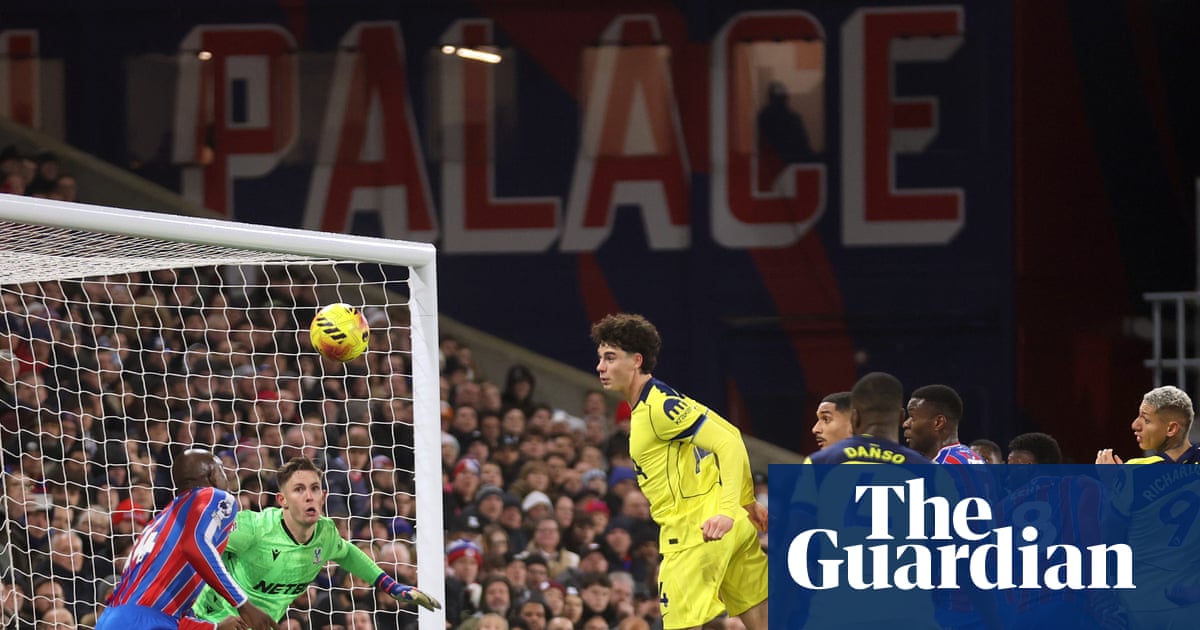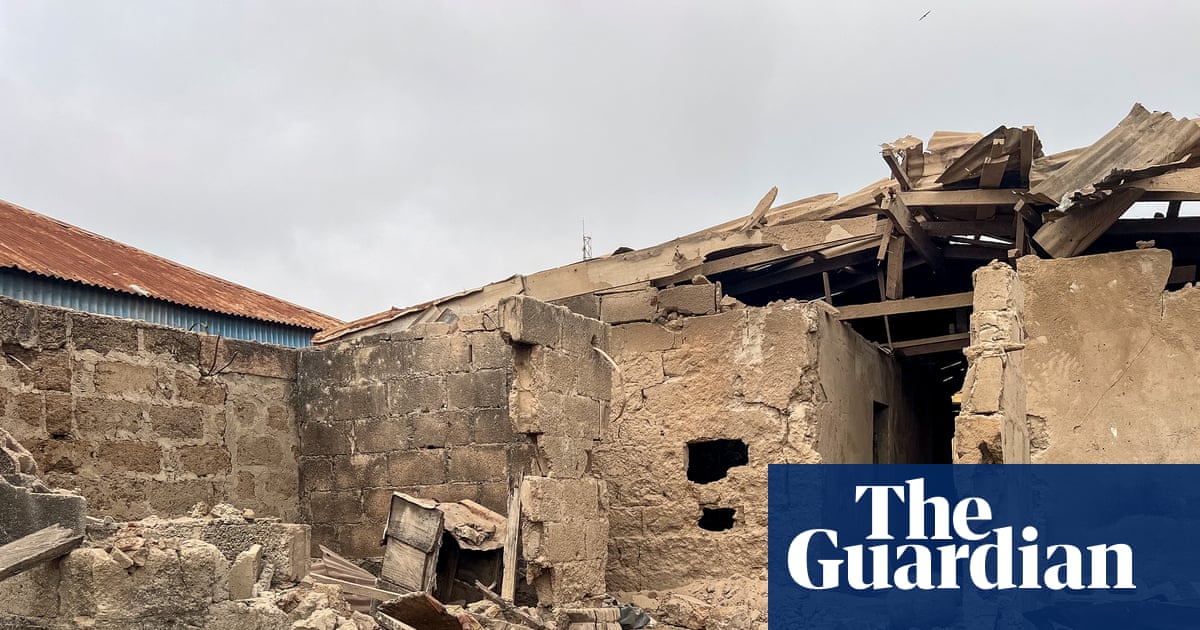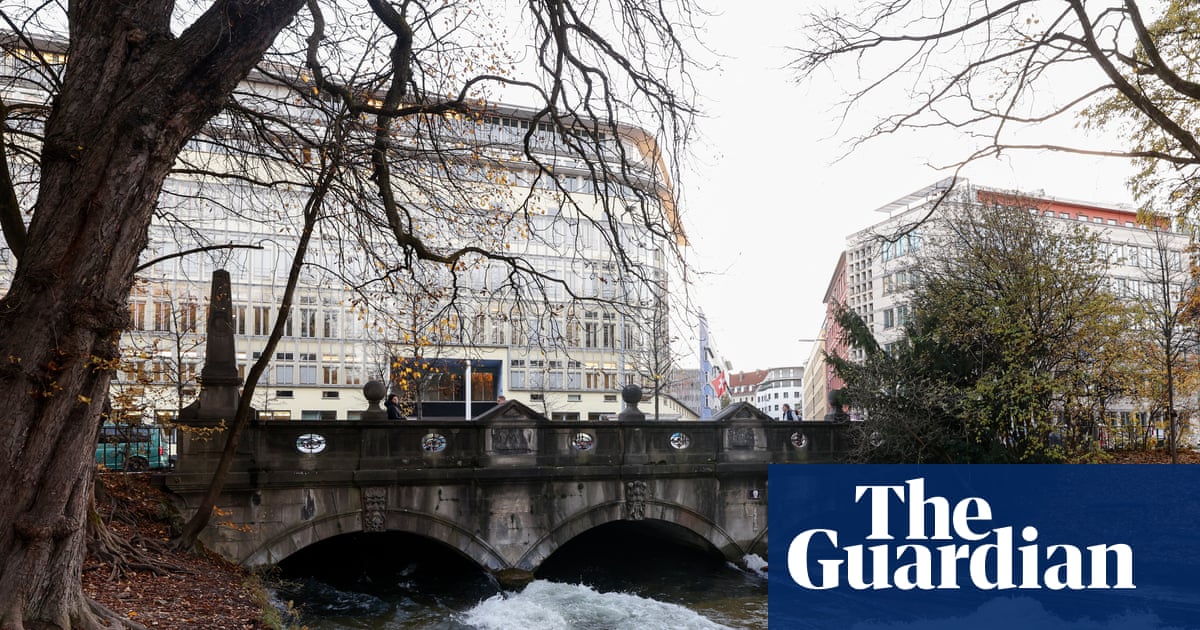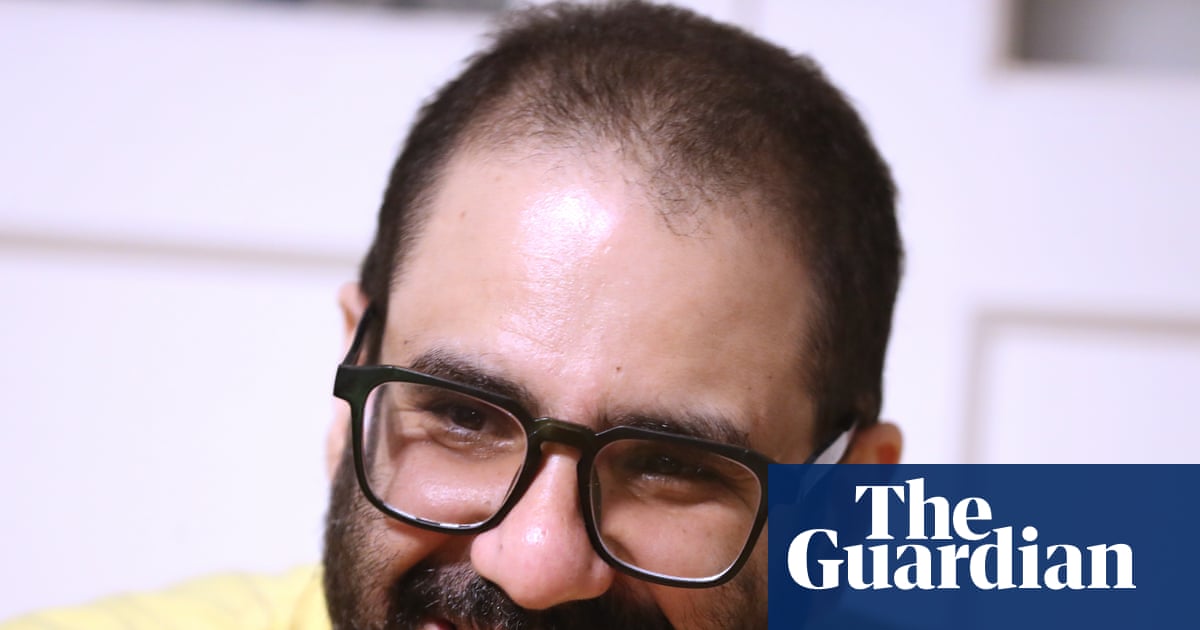On the last day of July, Russia launched an attack on Ukraine’s capital, Kyiv, the bloodiest one this year: 300 drones and eight missiles killed 31 people. On the same day, 700km (435 miles) away in a camp near the city of Svalyava in the Carpathian mountains, 30 children are roasting marshmallows. Most of the children live in Kyiv, but for now, they are at the Zefir summer camp.
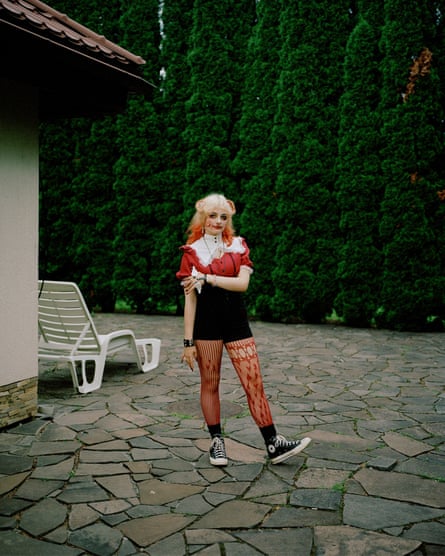
-
Sofia, 15, from Uzhhorod, dresses up for a theatre performance.
During the camp’s 10 days, there are no air raid alarms, and no one goes to shelters even once. It’s the longest period without an alarm or attack for many of these children since March 2022.
Many check their phones one extra time this Thursday. Are their families OK? Their friends?
It’s the Ukrainian couple Tetiana and Alex Svatenkova who welcomed the children to the summer retreat about a week ago. The camp takes place at a hotel in the mountains, an hour from the Polish border.
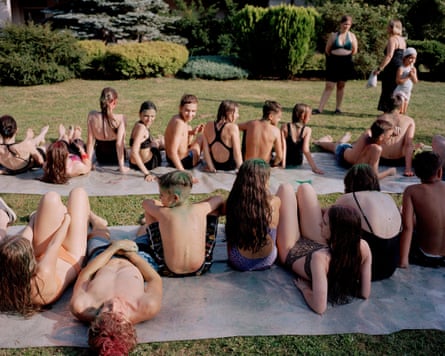
-
On the very hot days in camp, some form of water games is the usual afternoon activity.
The days are filled with role-playing, water fights, theatre and dance. The children, aged between nine and 16, come from most parts of Ukraine. However, most live in Kyiv in central Ukraine, while others are from the eastern city of Dnipro.

-
Matvii, 13, dressed up for a theatre performance.
Most of them came here because they wanted to do something fun during their summer holiday. But they are also here for another reason: to escape, even briefly, from the intensity of the war.
According to Tetiana, who holds a PhD in psychology, the camp provides a much-needed respite for the children.
The camp has existed since 2017, and back then, it was held in Kyiv. But when the war broke out, Tetiana and Alex had to move it to a safer location, which is how the children ended up here in the mountains.
There is a big difference among the children Tetiana hosted in her camp before and after the war, she says. It is especially their social skills that have changed. The constant uncertainty has left its mark.

-
Mykolya, 15, Nizjyn Sviatoslav, 15, Yelyzaveta, 13, and Oleksandra, 13, all from Kyiv, on an afternoon trip to the nearest kiosk
“Before the war, the children were more open to new experiences and relationships. They tried more things,” she says.
That’s why their work is now even more important, Tetiana believes. With her husband, she hosts about 500 children every year. There are already many different types of camp schools in Ukraine, she explains.

-
‘I didn’t want to sit at home all summer doing nothing’: Artem, 12, lives in a town quite close to the camp, unlike most of the others.
But the couple decided to start their own camp. They wanted to control the number of children in each group and ensure there weren’t too many, so they are able to be present with all of them.
They never even considered shutting down the camp after the war broke out.
“I can see that the children are generally more nervous. They are not afraid of spiders; they are afraid of the future. That’s why our sanctuary here is more important than ever.”

-
Zorya, 6, the daughter of the camp hosts Tetiana and Alex, spends all summer with different children in the camp.
Tetiana knows that neither two people with PhDs in social pedagogy, which her husband holds, and psychology nor 10 days without air raid alarms can solve the problems the war creates in the children’s lives.
But the time spent here in the camp can still give the children some confidence, she says.
With her husband and three team leaders, they try to identify each child’s individual strengths and then place them in situations that could push them in a positive direction. They arrange each camp differently, according to the needs they observe in the children.
“For example, if someone is good at dancing, that person will help organise the discos in the evening. That kind of self-confidence, we believe, they will take home with them.”

-
Valeriia, 15, from Kyiv, sits with Veronika, 15, from Dnipro
Exactly such a skilled dancer is here this week. Valeriia, 15, from Kyiv. She “loves everything” about being at the camp, but her favourite activity is clearly the disco with its loud music and movements.
“Sometimes when the instructors are tired, I can take over for them and lead the other children in the moves,” she says.

-
Valeriia, 15, and Arina, 16, locks hands at the disco.
Each evening ends with all 30 children on the dancefloor. Tetiana rhythmically leads them through the same moves to songs that include the Kpop hit Soda Pop or Pitbull’s Timber. For more than an hour, the children dance in a circle until sweat glistens on their faces.
Time spent away from air raid sirens feels strange, says Nika, 12, who lives in Kyiv.
“There are no alarms here. It’s really nice. But I’m really worried about my mom and my family while I’m here. I’ve called them every day.”
Veronika, 15, from the eastern city of Dnipro, also finds it nice to take a break from the intensity of the war. At home, she hears the alarm between three and four times a day.
“Here [at the camp], we are so far away from Russia. There’s no danger, no alarms,” she says. “We have so many activities here that I can get distracted. At home, I’m constantly thinking about the war because the danger is so close with Russia right next to us.”

-
Valeriia, 15, from Kyiv, Daniil, 14, from Kyiv Veronika, 15, from Dnipro and Arina, 16, from Kyiv.
Veronika’s family moved to Poland when the war broke out but decided to return to Dnipro a year later, where they still live. She is at the camp with her younger brother Max, 13, for the second year in a row.
It was their mother who suggested they go. Veronika is glad she did. She has made several friends here, whom she’s happy to see again this year.
She’s become particularly good friends with Valeriia. Together, they’ve painted matching henna designs on their left arms and are wearing matching socks and shoes.

-
Milana, 9, learns the rules of the card game played by her friends.
Since the couple started the camp in 2017, Tetiana has been measuring the children’s social competencies. It’s something she brought with her from her work as a psychologist.
After the war, she noticed that the children have become worse at regulating their emotions. Many of them were very young when the war started. It has been right in the middle of some very formative years and the children may have lost some basic skills. One consequence of this is the children’s use of mobile phones.
“Now they look at their phones even more than before,” she says.
Overuse and addiction to phones are not unique issues for Ukrainian children, but Tetiana believes it serves a specific function for them. It represents a form of control, she says.
“When they’re holding it, I don’t think they feel as much in danger,” she says.

-
Hleb, 10, from Kyiv. He is going to be in the camp for two weeks this year.
Phones are everywhere at the camp, even more so on the day of the particularly deadly explosions in Kyiv. The children scroll through one short video after another. One of the older boys in the group, Daniil from Kyiv, is also on his phone this Thursday morning.
With music from the band Deftones in his ears, he swings back and forth on the swing at the back of the yard for half an hour before the day’s activities officially begin. For one of Daniil’s good friends at the camp, Veronika, 15, from Dnipro, her phone is also the first thing she grabs during an attack. She always checks the news right away when she hears explosions back home.
“Recently, I heard a very loud bang. My windows shook. I think I was in shock and immediately checked my phone to find out what happened,” she says.

-
Dmymro, 15 pauses before loading his things on to the bus that will take him back to Kyiv.

-
Mykolya, 15 is saying goodbye to his team leader. He is heading back to Nizhyn.
After a tearful farewell with the team leaders, the children head back to Kyiv together. Some get off in Lviv on the way, others are heading farther east. Tetiana travels with the children.
Two days later, she’s on the bus back to the camp with a new group of summer camp children.

-
Yelyzaveta, 13, from Kyiv, lies down for a break during an afternoon game in the yard.

 3 months ago
59
3 months ago
59
